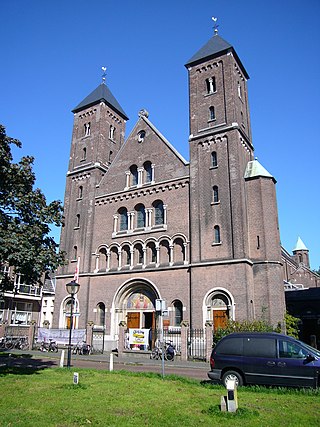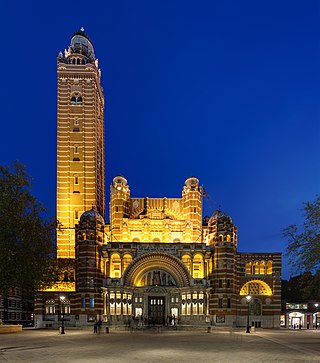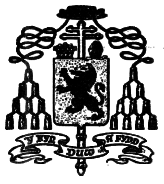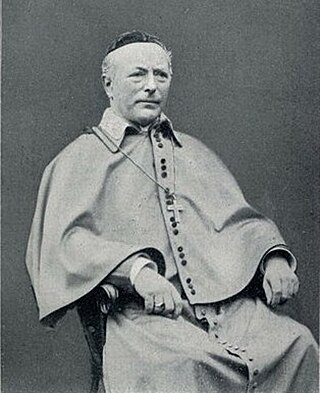
The Anglican Communion is the third largest Christian communion after the Roman Catholic and Eastern Orthodox churches. Founded in 1867 in London, the communion has more than 85 million members within the Church of England and other autocephalous national and regional churches in full communion. The traditional origins of Anglican doctrine are summarised in the Thirty-nine Articles (1571). The archbishop of Canterbury in England acts as a focus of unity, recognised as primus inter pares, but does not exercise authority in Anglican provinces outside of the Church of England. Most, but not all, member churches of the communion are the historic national or regional Anglican churches.
Anglicanism is a Western Christian tradition that has developed from the practices, liturgy, and identity of the Church of England following the English Reformation, in the context of the Protestant Reformation in Europe. It is one of the largest branches of Christianity, with around 110 million adherents worldwide as of 2001.

The Church of England is the established Christian church in England. It traces its history to the Christian church recorded as existing in the Roman province of Britain by the 3rd century and to the 6th-century Gregorian mission to Kent led by Augustine of Canterbury. Its adherents are called Anglicans.
The terms Old Catholic Church, Old Catholics, Old-Catholic churches or Old Catholic movement designate "any of the groups of Western Christians who believe themselves to maintain in complete loyalty the doctrine and traditions of the undivided church but who separated from the see of Rome after the First Vatican council of 1869–70".

Willibrord was an Anglo-Saxon missionary and saint, known as the "Apostle to the Frisians" in the modern Netherlands. He became the first bishop of Utrecht and died at Echternach, Luxembourg.

The Church of England traces its history back to 597. That year, a group of missionaries sent by the pope and led by Augustine of Canterbury began the Christianisation of the Anglo-Saxons. Augustine became the first archbishop of Canterbury. Throughout the Middle Ages, the English Church was a part of the Catholic Church led by the pope in Rome. Over the years, the church won many legal privileges and amassed vast wealth and property. This was often a point of contention between Kings of England and the church.

The Old Catholic Church of the Netherlands, sometimes Jansenist Church of Holland, is an Old Catholic jurisdiction originating from the Archdiocese of Utrecht (695–1580). The Old Catholic Church of the Netherlands is the mother church of the Old Catholic Union of Utrecht.

The Anglican Church of Canada is the province of the Anglican Communion in Canada. The official French-language name is l'Église anglicane du Canada. In 2017, the Anglican Church counted 359,030 members on parish rolls in 2,206 congregations, organized into 1,571 parishes. The 2011 Canadian census counted 1,631,845 self-identified Anglicans, making the Anglican Church the third-largest Canadian church after the Catholic Church and the United Church of Canada. The 2021 Canadian census counted more than 1 million self-identified Anglicans, remaining the third-largest Canadian church.
The Holland Mission or Dutch Mission was the common name of a Catholic Church missionary district in the Low Countries during and after the Protestant Reformation.

The history of the Anglican Communion may be attributed mainly to the worldwide spread of British culture associated with the British Empire. Among other things the Church of England spread around the world and, gradually developing autonomy in each region of the world, became the communion as it exists today.

The Bonn Agreement of July 2, 1931 is a formal affirmation which established full communion between the Church of England and the Old Catholic churches of the Union of Utrecht, including the Old Catholic Church of the Netherlands. While it allowed bilateral participation in sacraments, it does not require from either the acceptance of all doctrinal opinions. This communion has since been extended to all churches of the Anglican Communion through their synods.

The Union of Utrecht of the Old Catholic Churches, most commonly referred to by the short form Union of Utrecht, is a federation of Old Catholic churches, nationally organized from schisms which rejected Roman Catholic doctrines of the First Vatican Council in 1870; its member churches are not in communion with the Roman Catholic Church.
The word saint derives from the Latin sanctus, meaning holy, and has long been used in Christianity to refer to a person who was recognized as having lived a holy life and as being an exemplar and model for other Christians. Beginning in the 10th century, the Catholic Church began to centralise and formalise the process of recognising saints; the process whereby an individual was added to the canon (list) of recognised saints became known as canonisation.

Prior to the revision of the Anglican Church of Canada's (ACC) Book of Common Prayer (BCP) in 1962, the national church followed the liturgical calendar of the 1918 Canadian Book of Common Prayer. Throughout most of the twentieth century, the situation in Canada resembled that which pertained in much of the Anglican Communion: There was uncertainty as to whether post-Reformation figures could or should be commemorated. In the words of the calendar's introduction, "New names have been added from the ancient calendars, and also from the history of the Anglican Communion, without thereby enrolling or commending such persons as saints of the Church." The 1962 revision added twenty-six post-Reformation individuals, as well as commemorations of the first General Synod and of "The Founders, Benefactors, and Missionaries of the Church in Canada." Of the calendar days, twenty-eight were highlighted as "red-letter days" — that is, days of required observation.

The Catholic Church in England and Wales is part of the worldwide Catholic Church in full communion with the Holy See. Its origins date from the 6th century, when Pope Gregory I through the Roman monk and Benedictine missionary, Augustine, later Augustine of Canterbury, intensified the evangelization of the Kingdom of Kent linking it to the Holy See in 597 AD.

St. Catherine's Cathedral, Utrecht, is a Catholic church dedicated to Saint Catherine of Alexandria situated in Utrecht in the Netherlands.
The Church's Ministry Among Jewish People (CMJ) is an Anglican missionary society founded in 1809.

Arnold Harris Mathew, self-styled de jure 4th Earl Landaff of Thomastown, was the founder and first bishop of the Old Roman Catholic Church in the United Kingdom and a noted author on ecclesiastical subjects.

Gerardus Gul served as the seventeenth Archbishop of Utrecht from 1892 to 1920. He is known for his role in assisting the persons who would later found the Polish National Catholic Church in the United States, as well as for consecrating Arnold Harris Mathew, the founder and first bishop of the Old Catholic Church in Great Britain.

Bernd Wallet serves as the 84th Archbishop of Utrecht of the Old Catholic Church of the Netherlands. Elected on 15 February 2020, he was consecrated on 18 September 2021, after two delays due to the COVID-19 pandemic.













